Dear FM: M&E and Digital industry’s Budget expectations
Stage is set for the presentation of the first Union Budget of the re-elected Narendra Modi Government. Expectations are high as the industry looks for measures to boost the economy amid shortage of rainfall in large parts of the country, slowing down in employment rates and a slowdown in some key sectors.
Meanwhile, ahead of presenting her maiden Budget on Friday, July 5, 2019, Finance Minister Nirmala Sitharaman reiterated her confidence in India’s economic growth and affirmed that India continues to be the fastest-growing economy in the world.
Adgully brings the Budget wishlist of some of the leading names in the M&E and Digital industry.
Ashish Bhasin, CEO Greater South, Dentsu Aegis Network and Chairman & CEO India:
“Advertising is a very sentiment-driven business in India. Anything that drives GDP growth, drives advertising growth even more. In fact, the rule of thumb is that for every 10 per cent growth in GDP, advertising grows by 1.5 per cent. So, the new Budget needs to be growth-oriented, needs to put more money in the pockets of the rural and urban consumers to propel spending.
Further, there is an urgent need for tax reforms. Direct tax rates for both corporates and individuals need to be brought down noticeably and immediately. GST on advertising at 18 per cent is just too high. It needs to be rationalised at 12 per cent and the process and procedures need to be simplified as they are cumbersome, unproductive and wasting a lot of time.
India is poised for a decade or more of growth. Some bold steps taken in this Budget will help make that a reality.”
Partho Dasgupta, CEO, BARC India:
“Over the recent years, the broadcast sector has been experiencing dynamic changes. It has also become an aspirational sector for the youth of this country. Given the nature of the changes and the rising digitisation, we hope the investments by the Government will not only result in creating jobs in the M&E sector, but will also boost long-term growth for the industry, which will also indirectly aide the social fabric of the economy. Additionally, being an insights company that works closely with Big Data, investments in R&D is an ongoing practice and therefore we are hopeful that provisions for exemptions are made since it will also fuel growth across the sector.”
TS Kalyanaraman, Chairman & Managing Director, Kalyan Jewellers:
“We are hoping for a reduction in the import duty on gold from 10 per cent to 4-5 per cent. This would help buoy up positive business sentiments, and a cut in the duty structure will ultimately benefit the consumer. A step in this direction will also promote import of gold through legalised channels resulting in increased revenue for the Government.
We look forward to organised jewellery retail chains playing a more pro-active role in the Gold Monetisation Scheme, which would help the Government in reaching its targets of mobilising gold from consumers across the country. Jewellery purchase through EMIs is another option that we would like the Government to look into.”
Chetan Asher, CEO, Tonic Worldwide:
“With Modi Government’s second term, there is hope that the focus on spurring economic growth will be strong. Economic growth will directly affect the growth of advertising industry. I am also optimistic that we will see renewed focus on growing digital infrastructure and smart cities. This will lead to faster digital adoption. Lastly, I wish taxation would be further simplified and angel tax is removed completely and there’s enough provision to help India become the start-up capital of the world.”
Sabyasachi Mitter, Founder and Managing Director, Fulcro:
“The Modi 2.0 Government has set forth an ambitious target to make India a $5 trillion economy in the next 5 years. To achieve this we need to spur consumption I a big way while increasing investments in infrastructure. This will call for a fine balance between tax collections and incentives. From my perspective, the focus on start-ups ad MSMEs should be a focus for generating employment as well as driving GDP growth. The start-up policy could expand to include all start-ups in any employment generating sector with funding from any source, including bootstrapped and not need specified investors to qualify as a start-up. Expansion in Mudra loan disbursals would go a long way in generating a new breed of self-employed who will add to the economy while generating jobs. Skill India should get greater allocations and be taken to mission mode. Start-ups investing in education and skill development of all kinds should be given incentives and tax breaks. While we cannot expect major changes in GST or income tax, some relief in Standard Deduction or tax slabs for the salaried middle class could spur consumption. Doing away with LTCG could further drive the sentiment in the stock market leading to greater value being unlocked. Digitisation and digital India needs greater push and incentivisation.”
Shrenik Gandhi, Chief Executive Officer and Co-Founder, White Rivers Media:
“The world stands at the brink of the Fourth Industrial Revolution and India can spearhead Industry 4.0 globally. The growing emphasis placed on technological disruptors like AI, IoT, robotics, and machine learning in the Interim Budget bears testimony to the same and the entrepreneurial ecosystem of the country will play a pivotal role.
As Finance Minister Nirmala Sitharaman readies for her maiden budget, the answers to BJP’s promises of boosting the start-up revolution further by setting up 50,000 start-ups by 2024 are hence, much awaited. With the right mix of accelerators like reforms in existing regulatory frameworks, simplified tax structures, and start-up schemes, India can lead the 4IR, while simultaneously enhancing the quality and sustainability of its own growth.
As the world looks at India with renewed focus, actively seeking investment opportunities with increased enthusiasm due to the rapidly unfolding tech and entrepreneurial scenario, Budget 2019 is Mrs Sitharaman’s opportunity to make history.”
Deepak Lamba, CEO, Worldwide Media Ltd:
“We are expecting this Budget to be a business-friendly Budget, the main reason is if the economy rises to higher levels, it will mean more advertising, which will automatically mean good times for the media and entertainment industry.
Introducing simpler GST will be another big problem solver and will result in making the life of small business owners easier. The same will result in more propensity to spend as well.”
Prashan Agarwal, CEO, Gaana:
“We are extremely positive regarding the newly appointed Government’s vision and efforts to give impetus to the OTT industry in India. Digital India is a move in the right direction that will further bolster the music streaming economy by enhancing accessibility to Tier 2 and 3 markets. With a greater emphasis on Artificial Intelligence (AI) and lower data costs in the interim budget, this step in the right direction will nudge home-grown brands to launch disruptive products and services. Given the online user-base for music streaming is expected to reach 400 million by 2021, this potential influx of a wider set of internet users will encourage more advertisers to employ OTT platforms for audience segmentation and targeting to drive higher revenue.”
Pradeep Dadha, Founder and CEO, Netmeds.com:
“This Budget will be a marker of the Government’s assessment and vision for the economy. Union Budget 2019-2020’s allocation will determine whether healthcare and health-tech start-up will work in sync with the Government’s public healthcare policy and Digital India initiative. We believe that Finance Minister Nirmala Sitharaman’s Budget will incorporate and allocate resources for various initiatives announced in the Interim Budget presented earlier this year.
The Modi Government’s flagship healthcare scheme, Ayushman Bharat, may get an upgrade with focus on the availability of affordable healthcare and a far more robust public healthcare policy. We believe that generic drug substitution will play a pivotal role in lowering the public healthcare cost drastically, making quality healthcare accessible to the remotest corners of the country. The Government should support initiatives to fight the public perception of generic drugs and increase awareness among the masses. Industry bodies have also suggested that the Government give a much-needed boost to the preventive healthcare ecosystem in the country.
When it comes to the start-up ecosystem, the Government provided some relief to early-stage start-ups with the relaxation of Angel Tax. But the industry still feels that complete elimination of Angel Tax will work in favour of the rapidly expanding ecosystem. At the policy level, the ruling Government has already drafted e-pharma norms after due diligence. Once a legal framework is set, medicine delivery and other health-tech start-ups will be able to operate within a conducive environment. Quick implementation will, in turn, ease the bureaucratic process and facilitate fundraising activities for healthcare/ health-tech start-ups.”
Himanshu Gander, Director of Corporate Center, The Minimalist:
“We believe the existing GST structure needs to be streamlined to quite an extent. MSMEs face a lot of challenges and are generally in need of a good cash-flow to achieve their growth targets. Irregular input on the GST makes things a little tight for them.
As an organisation which heavily focuses on providing design and digital services, we are definitely looking forward to some additional budget being allocated by the Government to improve the digital infrastructure of the economy. A robust digital structure is a need of the hour.”
Rupesh Jain, Founder & CEO, Candere.com:
“Indian jewellery market is still an unorganised sector, which makes way gaping holes in the norms and standards set for it. The rollout of a national retail trade policy could bring this on track and standardise the industry policies and limitations. The regulation of norms in the retail and e-commerce industry would create more trust in the mind of customers and control the discrepancies that are caused in areas like pricing and sales as this would lead to transparency and erase the doubts and fears which still lingers in the minds of the audience in spite of the fact that jewellery buying in India is higher than any other country in the world.”


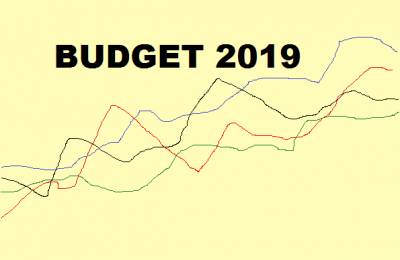



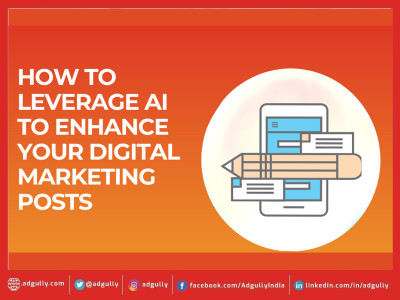
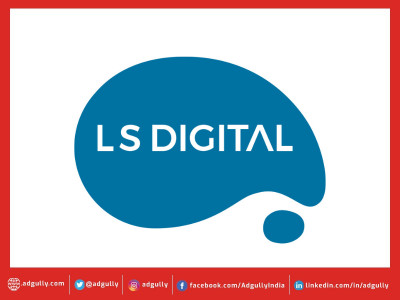




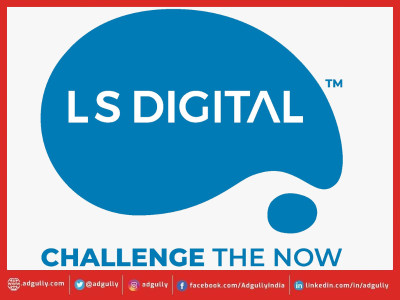

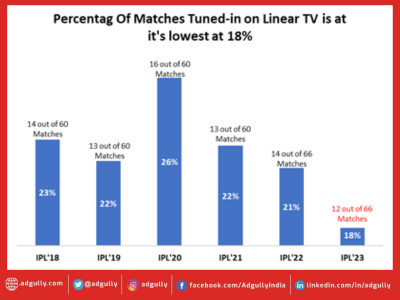

Share
Facebook
YouTube
Tweet
Twitter
LinkedIn